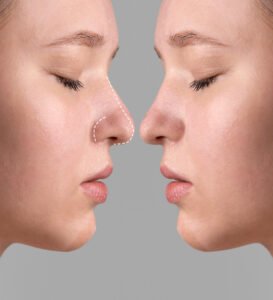Overview
Cervicitis is the inflammation of the cervix, often caused by infections, irritants, or underlying medical conditions. It can lead to vaginal discharge, bleeding, and discomfort. In Korea, gynecology specialists provide accurate diagnosis, treatment of infections, and preventive care to manage cervicitis effectively.
Symptoms
- Vaginal discharge, which may be watery, yellow, or green
- Vaginal bleeding between periods or after intercourse
- Pain or discomfort during intercourse
- Lower abdominal or pelvic pain
- Itching or irritation around the vulva
- Sometimes asymptomatic, detected during routine gynecological exams
Causes
- Sexually transmitted infections (STIs), including Chlamydia trachomatis and Neisseria gonorrhoeae
- Bacterial or yeast infections
- Irritation from chemical exposure (soaps, douches, spermicides)
- Allergic reactions to contraceptives or personal hygiene products
- Hormonal imbalances affecting cervical tissue
Risk Factors
- Multiple sexual partners or unprotected intercourse
- History of STIs
- Age under 25 (higher susceptibility)
- Weakened immune system
- Use of intrauterine devices (IUDs) without proper hygiene
- Poor genital hygiene or frequent exposure to irritants
Diagnosis
In Korea, cervicitis is diagnosed using:
- Pelvic examination to observe cervical inflammation
- Microscopic evaluation of cervical swabs
- Culture tests to identify bacterial, viral, or fungal infections
- Nucleic acid amplification tests (NAATs) for detection of STIs such as chlamydia and gonorrhea
- Pap smear to screen for cervical dysplasia and coexisting conditions
Prevention
- Practicing safe sex with condoms
- Regular STI screening, especially for sexually active individuals
- Avoiding irritants such as douches or harsh soaps
- Maintaining proper genital hygiene
- Vaccination against HPV to prevent associated cervical infections
- Routine gynecological check-ups for early detection
Treatment Options in Korea
- Medical Management
- Antibiotics for bacterial infections (e.g., chlamydia, gonorrhea)
- Antifungal or antiviral medications for yeast or viral infections
- Symptomatic relief with pain medications or topical agents
- Lifestyle and Supportive Care
- Avoiding irritants and allergens
- Abstaining from sexual activity until infection is cleared
- Follow-up testing to ensure infection resolution
- Specialist Care
- Managed by gynecologists in Korean hospitals for recurrent or complicated cases
- Counseling for sexual health and STI prevention













